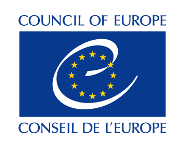
Council of Europe, was created
in 1949. Currently, the Council of Europe has 46 participating countries,
including the member states of the European Union and seek to promote human
rights, the rule of law and democracy, enhance European security through
combating terrorism, organized crime and trafficking in human beings and
develop cooperation with other international and European organizations.
Portugal has been a member
of the Council of Europe since September 22, 1976, and has signed and ratified
a few dozen Conventions and Agreements in this domain.
The organization's most
notable mechanisms include the European Convention on Human Rights and the
European Court of Human Rights.
The Council of Europe
monitors the application of the main treaties, including several conventions on
Human Rights, the Prevention of Terrorism, the Fight against Trafficking in
Human Beings and the Fight against Racism and Intolerance. Also makes suggestions
to strengthen democratic institutions and the rule of law.
https://www.coe.int/en/web/portal/home
European
Committee for the Prevention of Torture and Inhuman or Degrading Treatment or
Punishment (CPT)
The purpose of the CPT is to
establish an active, non-legislative mechanism, acting in parallel with the
judicial mechanism of the European Court of Human Rights, based on the
protection of human rights, by conducting monitoring visits to member States,
which give rise to reports with a set of recommendations.
http://www.coe.int/en/web/cpt/home
Group
of Experts on Action against Trafficking in Human Beings (GRETA)
GRETA is responsible for
monitoring the implementation of the Council of Europe Convention on Action
against Trafficking in Human Beings by the Parties.
The Portuguese Team Leader
of the Observatory on Trafficking in Human Beings, Rita Penedo, is a member of
GRETA, since November 2022, having been elected for her vast experience and
work carried out in this field.
http://www.coe.int/en/web/anti-human-trafficking
European
Commission against Racism and Intolerance (ECRI)
ECRI is a human rights body
of the Council of Europe, composed of independent experts, which monitors
problems of racism, xenophobia, antisemitism, intolerance and discrimination on
as the basis of “race”, national or ethnic origin, colour, citizenship,
religion and language (racial discrimination).
http://www.coe.int/t/dghl/monitoring/ecri/default_en.asp
Convention on Preventing and Combating
Violence against Women and Domestic Violence - Istanbul Convention (GREVIO)
Independent body of experts
responsible for monitoring the implementation of the Council of Europe
Convention on Preventing and Combating Violence against Women and Domestic
Violence.
https://www.coe.int/en/web/istanbul-convention/home